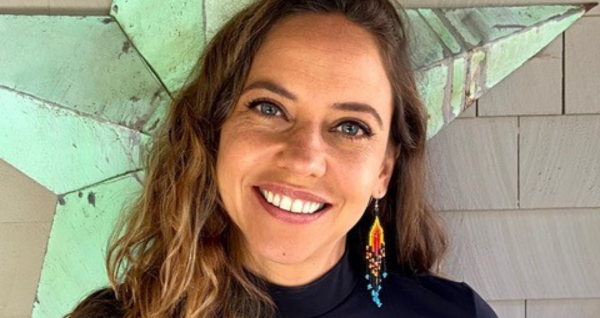Acknowledging her phenomenal work providing individual trauma-informed counseling, advocacy, and case management to clients between the ages of five and twenty-one years old.
Ariella joined the Manhattan Family Justice Center in the Children and Family Services Program (CFSP) in the fall of 2022 as a first year Master of Social Work student at Colombia University. Her work with Sanctuary for Families has provided individual trauma informed counseling, advocacy, and case management to clients between the ages of five and twenty one years old. She also conducts intake assessments for children and teens referred for counseling services.
Ariella’s work goes far beyond providing clinical support. She co-facilitated a Bingo Blowout event with our Children’s Activity Leader, and has assisted with children’s room activities as well as decorating and planning themes for the room. She is also co-facilitating a group for young girls with a focus on healthy relationships and self-empowerment.
Katherine Roman, Clinical Supervisor, and Erick DuShane, Counselor, said “Ariella has been an asset to our clinical team. She does a fantastic job completing thorough intakes while establishing and maintaining rapport with clients. Ariella has demonstrated trauma-informed care through her patience and effort to meeting clients where they are at. Children and families who have worked with Ariella have developed a positive relationship with Ariella, and the children enjoy coming to counseling.”
In addition to making a huge difference in the lives of the clients she works with, Ariella has also positively impacted her team of staff.
“She brings humor, dedication, empathy, and compassion to each setting, and she works hard to advocate for those around her. She is truly one of a kind. We are going to truly miss her [when her placement ends], but we are also proud of what is to come in her future.”
-Katherine Roman, Clinical Supervisor
Ariella has grown through her internship with Sanctuary in many ways. She said, “I have learned so much from my supervisor, Katherine Roman and the rest of the clinical team. I feel lucky to have so much support from them. They have taught me valuable lessons about trusting my instinct, following my clients lead in the direction they are ready to go, enjoying the process, and the value of self-care”.
Erick recalls a memorable moment with Ariella when she shared her genuine and warm demeanor with her “This was evident during the very first session when each of the clients shared that they were initially nervous joining the group but were completely comfortable by the end of the session.” Katherine fondly cherishes her one on one supervisions with Ariella, seeing her grow in her clinical skills and confidence, as well as watching her engaged in various activities within the program.
A huge thank you to Ariella for all her hard work and dedication to survivors of gender violence!
—
To learn more about Ariella and her work, please join us on April 20th from 6:00 – 7:30 PM at Pillars of Change.



